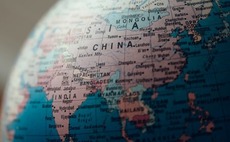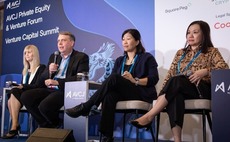
Asia Awards: Exit of the Year – King's Safetywear
Navis Capital Partners' acquisition of King’s Safetywear in 2008 didn’t happen at an opportune time. One week after the firm completed its $62 million take-private deal and de-listed King’s from the Singapore Stock Exchange, Lehman Brothers collapsed and asset prices crumbled across the board. Suddenly $62 million looked quite expensive.
However, during the three-year holding period, the industrial footwear manufacturer proved to be a standout example of Navis' investment philosophy: get in early, increase asset efficiency, penetrate new markets. When the private equity player exited King's to Honeywell International for an enterprise valuation of S$430 million ($338 million) in late 2011, it reaped an IRR of above 50%, or a 4x money multiple, well above the expected 3x.
Cost reduction was the first step. In addition to relocating production to lower-cost jurisdictions, the private equity firm sent in one of its supply chain professionals to work with the management and reduce working capital from about 43% of sales to 25%.
"On margin expansion, we switched from sourcing expensive leather uppers from Eastern Europe to less expensive alternatives from India - that alone saved about 10% of total raw materials cost per pair of shoes," Nick Bloy, co-managing partner at Navis, tells AVCJ.
With business growth in Southeast Asia relatively pedestrian at 7-8%, the next step was to pursue inorganic expansion. Although King's already owned German safety shoe brand Otter when Navis arrived, the PE firm took the company to another level by acquiring Oliver, the leading industrial boot brand in Australia, for a relatively low multiple.
The last step was to maximize exit value. J.P. Morgan ran the auction process and information memoranda were sent to 20 investors and the list was narrowed to three bidders within four months.
Bloy stresses that as long as Navis is a controlling investor with companies of a strong competitive position, strategic buyers - who are more eager to pay a premium - are always available whatever the broader economic or capital markets situation.
The PE firm has sold six companies this year - garment label manufacturer Trimco, the Thailand franchises of Dunkin' Donuts and Au Bon Pain, India's Andromeda and Nirula's and Indonesia-based Wall Street Institute - all to strategic investors.
"I think the fact that all our exits this year were to strategic investors speaks for itself," Bloy says. "Public markets have mediocre liquidity for anything less than the biggest of IPOs, and strategic investors in general have strengthened their balance sheets since Lehman and are prepared to make acquisitions, albeit only of the best assets."
Latest News
Asian GPs slow implementation of ESG policies - survey
Asia-based private equity firms are assigning more dedicated resources to environment, social, and governance (ESG) programmes, but policy changes have slowed in the past 12 months, in part due to concerns raised internally and by LPs, according to a...
Singapore fintech start-up LXA gets $10m seed round
New Enterprise Associates (NEA) has led a USD 10m seed round for Singapore’s LXA, a financial technology start-up launched by a former Asia senior executive at The Blackstone Group.
India's InCred announces $60m round, claims unicorn status
Indian non-bank lender InCred Financial Services said it has received INR 5bn (USD 60m) at a valuation of at least USD 1bn from unnamed investors including “a global private equity fund.”
Insight leads $50m round for Australia's Roller
Insight Partners has led a USD 50m round for Australia’s Roller, a venue management software provider specializing in family fun parks.






